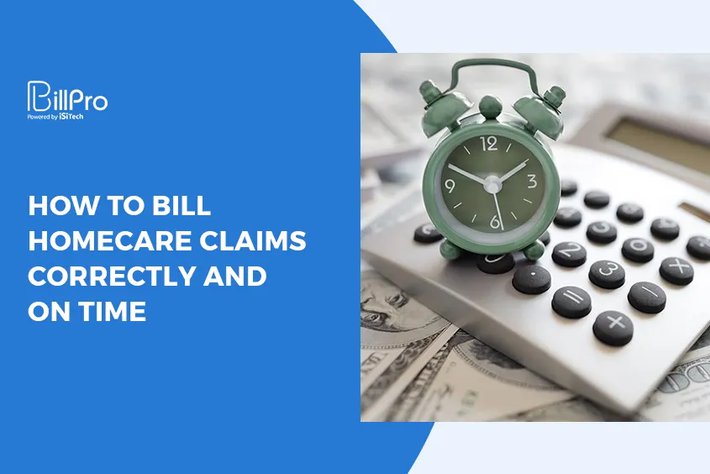Homecare billing can be daunting for both new and experienced billers. The process is long, billing codes are everchanging, and different payers require different formats and information, making it a complicated process from start to finish. Luckily, there are ways to alleviate some stress throughout the process and ensure that you submit claims without error every time. If you’re new to homecare billing, these are just some of the ways you can stay on top of your claims and get reimbursed as quickly as possible.
Understand Payer Requirements
If you’re working with Medicaid and a few other payers, it’s important to note that each will require specific claim formats, codes, and other specifications that could impact how you create your claim. Before you sit down to start your billing, make sure you understand what each payer requires. This will save you time in the long run when you don’t have to fix your claims and resubmit.
Be Diligent With Your Coding
As you may be aware, there are tens of thousands of ICD codes, with more constantly added to accompany new and emerging viruses and treatments. Keeping track of all coding updates is one of the best ways to put yourself in a good position to avoid denials down the line. The following are some additional tips to improve your coding and avoid denials.
- Hire experienced coders. If your practice is large enough that you’re considering hiring a team of coders, make sure you hire ones with experience in the field. Coding is a skill that can be learned, but you don’t want your company to be the place where someone is learning for the first time.
- Avoid upcoding and undercoding. Whether it’s intentional or not, upcoding and undercoding are both illegal billing practices that can stain your business’s reputation if you aren’t careful. It’s important to avoid both by carefully coding each claim. Submitting a claim for a service that’s more expensive or less expensive than the actual service is only going to set you back and cause claim denials.
- Be aware of your modifier usage. Incorrect modifier usage is the second most common reason for denials and potential loss of revenue.
Focus on Submitting Clean Claims
Fixing error-filled claims and resubmitting is a time-consuming process—one nearly as time-consuming as filing claims in the first place. Finding a way to submit clean claims as frequently as possible is your best bet at running a successful practice. Here’s how you can achieve that goal:
- Check patient eligibility before filing the claim. When you’re working with homecare patients, it’s crucial to figure out which services they’re eligible for before agreeing to any deals. Incorrect eligibility is the number one reason for rejections. Don’t make this common mistake.
- Invest in software for Medicaid billing. Software isn’t cheap, but it’s one of the best investments you can make for your business, hands down. Not only does software speed up your process—it also reduces claim errors by automatically inputting the correct codes.
- Analyze your errors. It’s important to understand where your mistakes came from in the first place so you can avoid them in the future. Having regular training sessions with your team is a good way to discuss your shortcomings and prevent them from continuing.
Practice Effective Denial Management
Denials are unfortunately a part of medical billing. First and foremost, it’s important to work hard to prevent them from ever landing in your inbox. However, assuming that some are certain to slip by even the most efficient of processes, it’s important to understand what to do with them.
- Address denials within 48 hours of receiving them. The best chance you have of correcting a claim error is if you act fast. Don’t sit on denials, because then they’re more likely to become lost revenue.
- Figure out your dispute strategy quickly. Every denial is different, so you need to assess each denial and decide what is worth a dispute and what is not.
- Analyze your denials. Finding the root of the problem is the best way to determine how to go about preventing future denied claims.
Invest in Billing Software
Billing software is one of the biggest changes you can make at your company to submit homecare claims correctly and on time. Finding the right system for your specific business is important, though. These are just some of the features you should look for when shopping around for billing software:
- Automatic claim scrubbing. You want a system that automatically searches your claims for errors to avoid rejections and denials.
- Custom reporting tools. Analyzing your data is an important way to allow your business to grow. Make sure your system has custom reporting capabilities, so you can view the data you want to see in the format that’s best for you.
- 24/7 support. Nothing is worse than coming to a roadblock without answers. A good billing company will promise its customers 24/7 customer support, so you can have your questions answered whenever needed.
Ready to manage your claims better than ever before. Get in touch with BillPro for a free demo of our NY Medicaid billing software.

 5/5 (1 vote)
5/5 (1 vote)
 169 views
169 views






